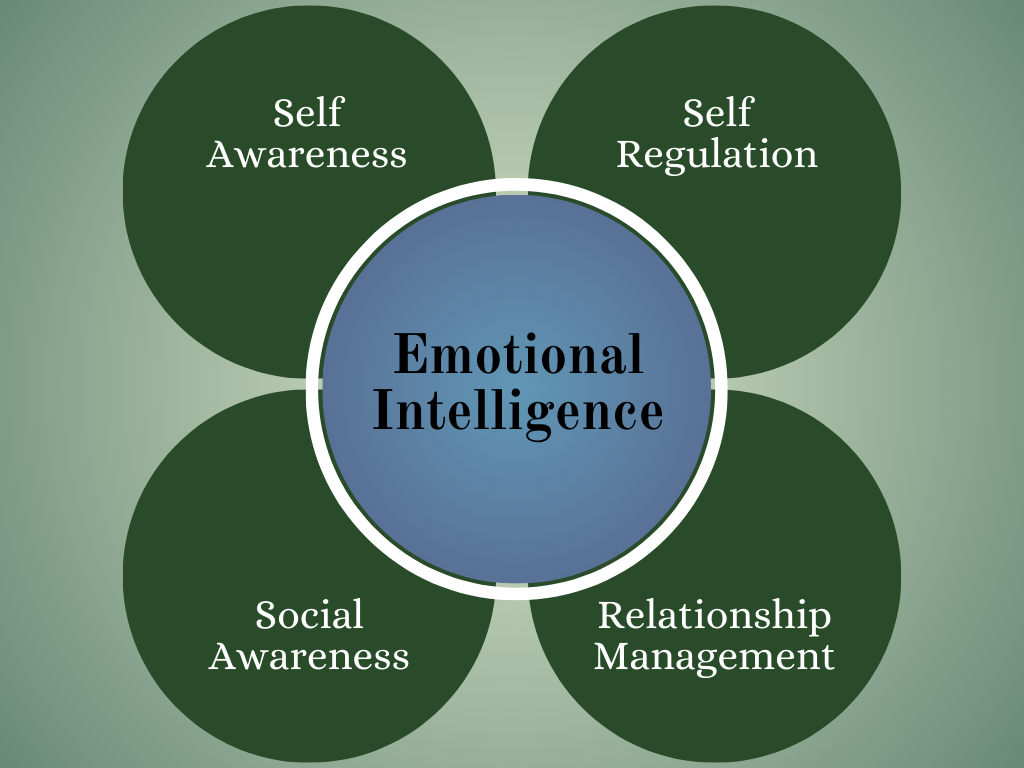Building Emotional Intelligence : Unlocking Your Success Potential
Ever heard of building emotional intelligence ? It’s like developing a superpower in today’s fast-paced world.
Have you ever wondered why some people seem to breeze through life’s challenges with ease, while others struggle to keep their emotions in check ? That’s due to a lack of emotional intelligence.
In this fast-paced world, where stress and uncertainty seem to be the norm, wouldn’t it be amazing to have a superpower that could help you stay calm, focused, and connected to those around you ?
Well, buckle up, because in this article, we’re going to uncover how to gain emotional intelligence, the keys to unlocking your full potential through it. We’ll dive into the mysterious world of emotional intelligence—the secret sauce that empowers you to understand yourself better, handle life’s curveballs with grace, and build deeper connections with others.
Get ready to embark on a journey of self-discovery and transformation as we explore the path to building emotional intelligence, uncovering its profound impact and how it can enrich your life significantly.
The Roadmap for Building Emotional Intelligence
Emotional intelligence (EI) is the ability to understand and manage one’s own emotions, as well as to recognize and influence the emotions of others. In today’s world, where interpersonal relationships and effective communication are paramount, EI plays a crucial role in personal and professional success. It empowers individuals to navigate social interactions, handle stress, and make informed decisions based on emotional cues. However, a lack of emotional intelligence can present substantial barriers to achieving these vital outcomes.
The Four Components of Building Emotional Intelligence
Breaking down emotional intelligence reveals four key components. Firstly, self-awareness entails acknowledging and comprehending one’s own emotions. Secondly, self-regulation entails managing and controlling those emotions effectively. Thirdly, social awareness encompasses empathizing with others and understanding their emotions. Lastly, relationship management focuses on building and maintaining healthy interpersonal connections.

Now, let’s explore why building emotional intelligence matters.
Why Building Emotional Intelligence Matters ?
Emotional intelligence (EI) isn’t just a nice-to-have skill; it’s essential for navigating life’s challenges and achieving success. Here’s why :
- Enhanced Decision-Making : EI influences decision-making processes by helping individuals assess situations more accurately, weigh options with empathy, and anticipate the emotional impact of choices, resulting in better outcomes.
- Improved Relationships : EI fosters healthier and more fulfilling personal and professional relationships by promoting effective communication, empathy, and conflict resolution skills. It enables individuals to connect on a deeper level, understand others’ perspectives, and build trust and rapport.
- Resilience and Well-being : EI plays a critical role in coping with stress, adversity, and maintaining mental health. It empowers individuals to regulate their emotions, adapt to changing circumstances, and bounce back from setbacks with resilience.
Now, it’s time to uncover how to gain emotional intelligence and unlock your full potential.
Strategies for Building Emotional Intelligence
Building emotional intelligence is a journey that requires practice and dedication. Here are some practical strategies to help you build your EI skills :
- Self-Awareness Exercises : Begin by increasing your self-awareness through introspection and mindfulness. Try journaling about your thoughts and emotions daily, identifying patterns in your behavior, and reflecting on how different situations impact you emotionally. Additionally, mindfulness meditation can help you observe your thoughts and feelings without judgment, deepening your understanding of yourself.
- Tools for Self-Regulation : Learn to manage your emotions effectively by employing various self-regulation techniques. Practice deep breathing exercises or progressive muscle relaxation to calm yourself during moments of stress or anxiety. Develop a toolbox of coping strategies, such as positive self-talk, visualization, and setting boundaries, to help you regulate your emotions and impulses in challenging situations.
- Empathy Building Activities : Cultivate empathy by actively listening to others and seeking to understand their perspectives. Engage in perspective-taking exercises, where you imagine yourself in someone else’s shoes and consider their feelings and experiences. Volunteer or engage in community service activities that expose you to diverse perspectives and foster empathy towards others.
- Communication and Conflict Resolution Techniques : Enhance your communication skills by practicing active listening, assertiveness, and nonverbal communication. Learn to express yourself clearly and assertively while also being receptive to others’ viewpoints. When faced with conflicts, use collaborative problem-solving techniques, such as negotiation and compromise, to find mutually beneficial solutions and strengthen relationships.
Consistently applying these strategies enables you to enhance your emotional intelligence, leading to improvements in your relationships, decision-making abilities, and overall well-being.
Given our exploration of methods to overcome a lack of emotional intelligence and insights into how to gain emotional intelligence, let’s now delve into practical techniques that seamlessly integrate into everyday life, fostering the continued growth and strengthening of these essential skills.
Practical Techniques that help in Building Emotional Intelligence
- Mindfulness Practices : Introduce mindfulness techniques as a means to develop emotional intelligence and cultivate presence. Through practices such as mindful breathing, meditation, and body scans, individuals can become more aware of their emotions and reactions in the present moment, enabling them to respond more effectively to challenging situations.
- Reflection and Journaling : Encourage readers to engage in self-reflection and journaling as tools for building emotional intelligence. By setting aside time to reflect on their experiences, thoughts, and emotions, individuals can gain deeper insights into themselves and their patterns of behavior. Journaling allows them to track their progress, identify areas for growth, and express themselves freely.
- Seeking Feedback : Advocate for seeking feedback from others as a way to gain insights into one’s strengths and areas for growth. Constructive feedback from trusted friends, mentors, or colleagues can provide valuable perspectives and help individuals develop greater self-awareness and insight into how their actions impact others.
By incorporating these practices into their daily routines, individuals can actively cultivate emotional intelligence and reap the benefits of improved self-awareness, interpersonal relationships, and overall well-being.
Conclusion
In conclusion, building emotional intelligence is not just a one-time effort but a lifelong journey of growth and self-discovery. By consistently practicing mindfulness, reflection, and seeking feedback, individuals can quickly learn how to gain emotional intelligence and navigate life’s challenges with resilience and grace.
The ability to understand and manage one’s emotions, empathize with others, and communicate effectively is invaluable in personal and professional settings.
As we persist in addressing the lack of emotional intelligence in our everyday lives, we empower ourselves to lead more fulfilling and meaningful lives, fostering deeper connections and unlocking our true potential for success and well-being.






















